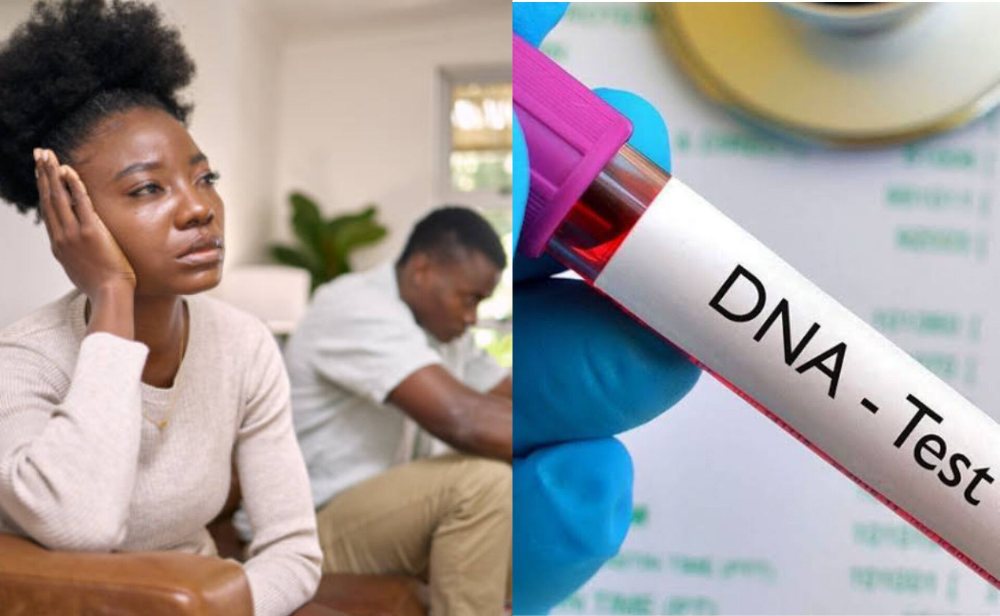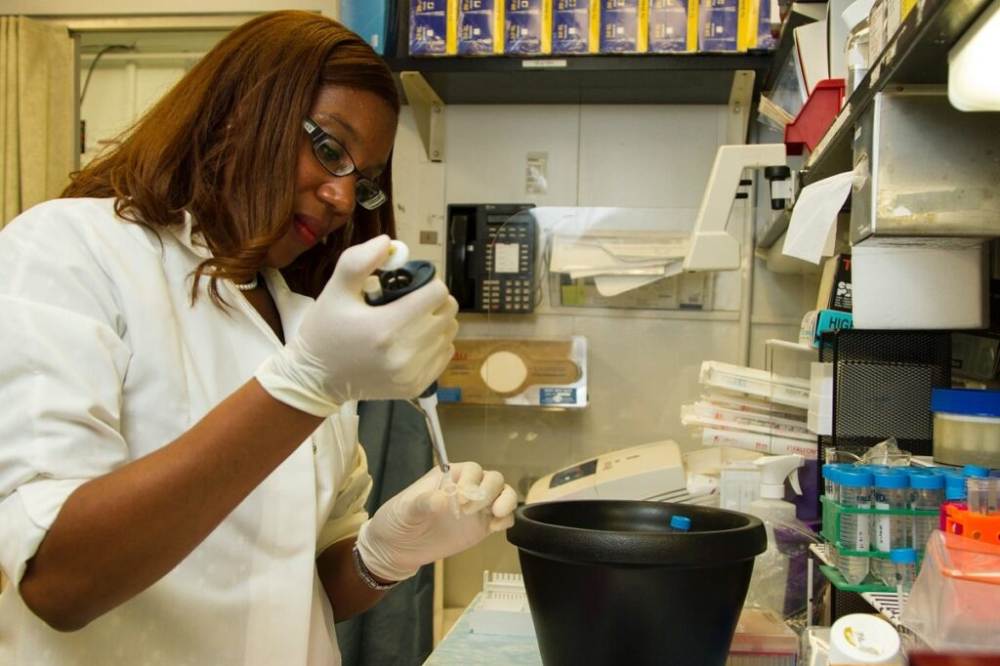
Paternity-misattribution headlines regularly surge across Nigeria: DNA tests that upend families, strain relationships, and spark national debate. Those viral moments are vivid but can obscure a more useful question: why some women present a child as belonging to a man who isn’t the biological father.
This article explains common drivers behind misattributed paternity, clarifies what lab figures do — and do not — show, and summarises how paternity testing works and what it costs in Nigeria today.
How Common Is Paternity Fraud in Nigeria?
Several private Nigerian testing centres have reported elevated non-paternity rates among people who request tests. A leading lab’s 2025 report found that roughly one in four submitted paternity tests excluded the tested man (Smart DNA Nigeria, 2025)1. That figure has been widely quoted in media and social discussion, but it comes with a crucial caveat: lab figures reflect a self-selected sample — people who suspect a mismatch and therefore seek testing — and should not be read as a population-level prevalence rate (Africa Check, 2025)2. Treating lab-reported exclusion rates as national prevalence risks inflating public alarm and misdirecting policy responses. In short, current data reflect suspicion patterns, not national prevalence.
Why Women Misattribute Paternity
Motivations are varied and anchored in social, economic, and relational contexts. Research and case reviews identify several commonly reported drivers:
1. Financial pressure
Economic insecurity shapes many family decisions. Where a man’s income determines access to healthcare, stable housing, or schooling, some women attribute pregnancy to a financially stable partner to secure ongoing support for the child and household.
2. Social stigma and shame
Women often face harsher social penalties for perceived sexual transgression. Fear of gossip, family rejection, or violence can make frank disclosure feel dangerous; presenting a child as belonging to an accepted partner can be a protective strategy.
3. Relationship instability and overlapping relationships
Conception during overlapping relationships — a “final encounter” with an ex, a brief affair, or sexual contact during emotionally fraught periods — can create uncertainty about paternity. In some cases, the woman genuinely does not know the biological father; in others, she makes a pragmatic choice about which partner to name.
4. Infertility pressures and lineage expectations
In communities where fertility is tightly linked to social standing and marriage stability, women who struggle to conceive may feel compelled to preserve appearances and shield themselves from stigma.
3. Revenge or emotional harm (minority of cases)
A small subset of cases appear driven by retaliation in relationships already characterised by betrayal or abuse; these are typically embedded in broader patterns of conflict and harm.
Understanding these motives as contextual rather than purely malicious helps shift responses toward prevention, support, and informed policy rather than punishment.
Paternity Testing in Nigeria: Where, How, and What It Costs

Where It’s Done
Accredited DNA and medical laboratories operate in major cities including Lagos, Abuja, Port Harcourt, Enugu, and Kano (Akingboye et al., 2025)3. Reputable facilities typically publish accreditation details and the types of reports they issue (private vs. legal).
How It Works
Most modern paternity tests use buccal (cheek) swabs from the alleged father and child. Labs compare genetic markers and calculate a probability of paternity. When samples are collected and analysed in accredited facilities, results are scientifically reliable.
Cost and Timeline (Indicative Ranges, 2025)
| Test Type | Estimated Cost (₦) | Turnaround |
|---|---|---|
| Standard peace-of-mind | ₦150,000–₦350,000 | 7–10 days |
| Legal / court (chain of custody) | ₦290,000–₦600,000 | 7–10 days |
| Express add-on | +₦50,000–₦100,000 | 48–72 hrs |
Prices may vary based on sample number, urgency, and lab accreditation level. Confirm the final price and collection requirements with the chosen lab before booking.
Accuracy and Limitations
When performed in accredited labs with correct sample collection and documented chain of custody for legal tests, paternity testing yields high probabilities of parentage (commonly reported >99.9% for biological fathers). Accuracy depends on lab standards, marker panels used, and proper handling.
What the Data Tell Us — and What They Don’t
Lab and media figures demonstrate that testing demand has risen and that testing infrastructure is more accessible than before. However, these exclusion rates should not be interpreted as national estimates of misattribution (Africa Check, 2025)2. The main limitations to communicate are:
- Sampling bias: people requesting tests already suspect a mismatch; they are not a random sample (Onco-Genomics, 2025)6.
- Reporting bias: viral cases skew public perception and media agendas.
- Access gaps: cost, stigma, and geography limit who can get tested, so reported figures underrepresent rural and low-income populations.
Presenting figures with these caveats improves credibility and keeps the discussion focused on harm reduction, access, and social drivers rather than moral panic.
Conclusion — What Constructive Steps Look Like
Paternity misattribution reflects deeper social pressures — poverty, gendered stigma, relationship strain, and unequal access to reproductive healthcare. Practical, harm-reducing steps include:
- Expanding affordable, confidential testing with transparent pricing and clear distinctions between private and legal tests.
- Promoting counselling and family-centred support services rather than punitive responses.
- Addressing structural drivers: economic insecurity, gendered stigma, and gaps in reproductive health services.
Normalising evidence-based conversations about paternity testing, fertility, and relationship accountability — without sensationalising individual stories — is essential to protect families and reduce harm.
References
- Smart DNA Nigeria. (2025, August 18). Smart DNA Nigeria Annual Report 2025: Key Insights into Paternity Testing Trends. https://smartdna.com.ng/smart-dna-nigeria-annual-report-2025-key-insights-into-paternity-testing-trends/
- Africa Check. (2025, September 12). Viral claim about severity’s the of ‘paternity fraud’ only reflects testing trends. https://africacheck.org/fact-checks/meta-programme-fact-checks/viral-claim-about-severity-paternity-fraud-only-reflects
- Akingboye, O. A., Adegbuyi-George, B., & Sonuga, E. O. (2025). The Dynamics of Paternity Fraud and Paternity Misattribution in Nigeria. ResearchGate. https://www.researchgate.net/publication/393637422_THE_DYNAMICS_OF_PATERNITY_FRAUD_AND_PATERNITY_MISATTRIBUTION_IN_NIGERIA
- Smart DNA Nigeria. (2025). How Much is DNA Paternity Testing in Nigeria: The Definitive Guide. https://smartdna.com.ng/how-much-is-dna-paternity-testing-in-nigeria-the-definitive-guide/
- Surjen Healthcare. (2025). DNA Paternity Test in Nigeria: Just N290,000. https://www.surjen.com/lab-test-details/dna-paternity-test-x2
- Onco-Genomics. (2025, January 1). How Much is DNA Test in Nigeria? 2025 Price Guide. https://oncogenomics.com.ng/dna-test-in-nigeria/


